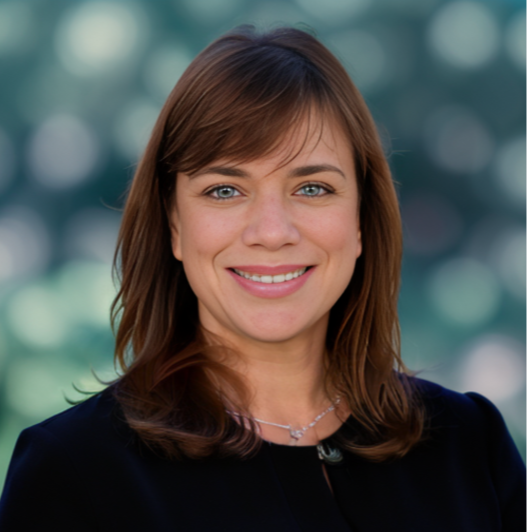The NDIS is Changing - What Training Do You Need?
The NDIS shift toward impairment-based funding presents a challenge: how can therapists stay evidence-informed, neuro-affirming and strengths-based while ensuring therapy approaches align with new funding criteria?
The Perception-Action Approach (PAA) bridges this gap, offering a modern, evidence-informed approach that prioritises self-generated movement, problem-solving, and motor adaptability - all while meeting the evolving NDIS framework.
For the first time in Australia, this exclusive training, led by Lisa Pinson, provides therapists with practical, hands-on strategies to apply PAA in everyday clinical practice.
Why Attend?

Learn PAA Treatment & Handling Techniques
Gain practical, hands-on skills for guiding self-generated movement, problem-solving & motor adaptability

Move Beyond Traditional Milestones
Shift from impairment correction to function-driven therapy

Interactive, Applied Learning
Hands-on training, video case studies and real-world application

Strengths-Based & Evidence-Driven
Learn a dynamic approach to motor development

Exclusive to Australia
Be among the first therapists in the country to train in PAA

Limited Spots Available
We are expecting this to sell out!
What is the Perception-Action Approach (PAA)?
The Perception-Action Approach (PAA) is a paradigm shift in motor therapy. Instead of correcting movement patterns, PAA prioritises variability, adaptability, and child-led movement.
The PAA is rooted in:
-
Perception-Action Theory – Movement and perception form a continuous learning loop.
-
Dynamic Systems Theory – Motor development is self-organising and influenced by multiple systems.
-
Neuronal Group Selection Theory – Repeated movement experiences strengthen motor learning.
PAA focuses on:
✔ Caregiver involvement in real-world settings.
✔ Task-specific movement that is meaningful to the child.
✔ Encouraging self-initiated problem-solving rather than therapist-led corrections.
✔ Repetitive practice of functional movements that drive long-term motor learning.
I Want to Learn the Perception-Action Approach!

What You'll Learn
🔹 The theoretical basis of PAA.
🔹 How to apply PAA in clinical practice.
🔹 The importance of movement variability and self-generated action.
🔹 Strategies for optimising motor function in children with disabilities.
🔹 How to integrate PAA with neuroplasticity principles.
🔹 Gentle-touch manual guidance for supporting motor exploration.
🔹 How to adjust the therapy environment to encourage independent movement.
🔹 Hands-on partner labs to experience PAA techniques in action.
Register Now - Limited spaces available!📖 Want to learn more?
Read this important PAA article by Rahlin, M., Barnett, J., Becker, E., & Fregosi, C.M.: Development Through the Lens of a Perception-Action-Cognition Connection: Recognizing the Need for a Paradigm Shift in Clinical Reasoning (Free Full Text)
Check out this related PAA study, Feasibility of an intensive outpatient Perception-Action Approach intervention for children with cerebral palsy: a pilot study (Free Abstract)
Explore the PAA theoretical foundations on the official website.
Core Concepts
PAA is a child-driven, interactive approach that enhances motor adaptability, exploration, and problem-solving.
Key Principles:
✔ Environmental Affordances – Setting up therapy spaces that naturally invite movement and exploration.
✔ Manual Guidance – Using gentle, light touch to provide new perceptual information without restricting movement.
✔ Perceptual Information Gathering – Movement provides real-time feedback that drives motor learning.
✔ Self-Organisation & Problem-Solving – Encouraging children to discover multiple movement solutions.
✔ Therapists will practice partner-based labs and analyse real-world case studies.
Event Details
📅 Dates: October 18-19, 2025
📍 Location: Hornsby RSL, Sydney
🎟 Workshop Early Bird Price: $897
✋Spots Are Limited – Secure Yours Today!
Register for PAAVenue & Accessibility
The training will take place at Hornsby RSL, a convenient and accessible location just a 5-minute walk from Hornsby Station with on-site parking available.
🚆 Public Transport:
-
Hornsby Station is a 5-minute walk from the venue, with connections to the T1 North Shore & Northern Lines and Central Coast & Newcastle Line.
-
Multiple bus routes serve the area, making it easy to reach the venue.
🚗 Parking:
-
A multi-story car park is available via William Street, just a short walk to the venue.
♿ Accessibility:
-
The venue offers ramp access, accessible parking, and elevator access for wheelchair users.
-
Accessible restrooms are located near the function rooms.
☕ Meals & Refreshments:
-
Lunch, morning tea and afternoon tea will be provided.

Meet Your Speaker
Lisa JH Pinson, Physical Therapist, U.S.A.
PT, DPT, PCS
Limited Places Available - Register Now!Lisa JH Pinson, PT, DPT, PCS is a board-certified paediatric physical therapist with over 26 years of experience across a wide range of clinical settings. She is a founding board member and current treasurer of the Institute for Perception-Action Approach (IPAA), and has played a leading role in advancing the model globally.
Lisa founded the PEDI Center for Therapy in Phoenix and participated in a landmark NIH-funded study using PAA with children with cerebral palsy. She currently works at Children’s Healthcare of Atlanta and contributes to research at Emory University’s Pediatric Neonatology Brain Development Lab. Her work blends clinical insight, research, and a deep understanding of developmental movement.
Lisa brings warmth, clarity, and clinical depth – and is passionate about helping clinicians apply the Perception-Action Approach in real-world practice
Who Should Attend?

Occupational Therapists

Physiotherapists

Therapists Supporting Motor Development & Function








